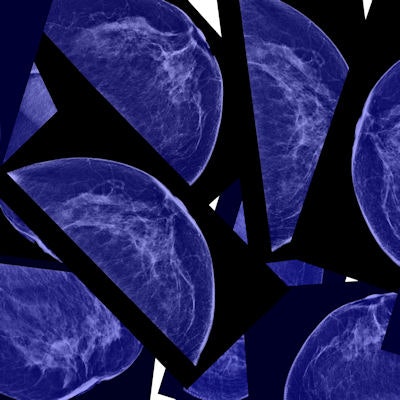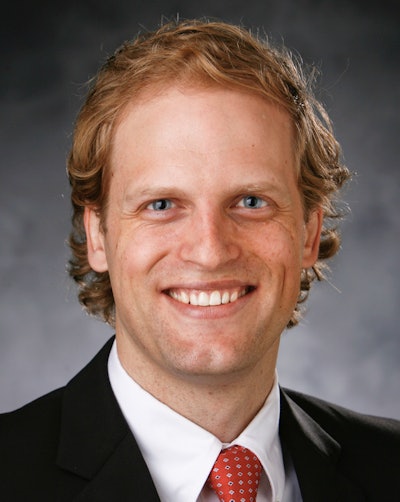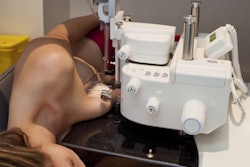
Most women tend to overestimate their risk of breast cancer, according to research presented at the recent RSNA 2017 meeting in Chicago. And if they do receive a report of a suspicious finding, they would rather have it biopsied immediately than undergo follow-up imaging a short time later.
In a survey study, Dr. Lars Grimm of Duke University School of Medicine and colleagues found that women feel more comfortable with biopsy as an option if there's any chance they could have breast cancer, a preference that could be related to their overestimation of their cancer risk.
"Women prefer conservative intervention thresholds and seem to accept the risk of false-positive biopsy over a follow-up protocol," he said. "We found that women found the 'harm' of a false-positive biopsy to be less than the harm of anxiety throughout a six-month follow-up period."
Survey says
 Dr. Lars Grimm from Duke University.
Dr. Lars Grimm from Duke University.It hasn't always been clear how women perceive their own breast cancer risk, as well as what they consider to be acceptable risk thresholds following a suspicious mammogram, according to Grimm. So he and his colleagues investigated women's perceptions of breast cancer risk and thresholds for choosing biopsy when following up lesions classified as BI-RADS 3 or 4A. (BI-RADS 3 means "probably benign," and short-term follow-up is recommended, while BI-RADS 4A connotes a finding with a low suspicion of being cancer, but biopsy should be considered.)
The study included 2,747 surveys completed by women from five medical centers across four states. Women were asked to quantify their baseline anxiety about breast cancer; then they were asked for responses to two hypothetical scenarios for working up an abnormality seen on mammography:
- A radiologist recommending short-term follow-up imaging six months after the initial exam
- A radiologist recommending a biopsy be performed immediately, with the acknowledgement that there was a low risk of malignancy
Grimm and colleagues used the State-Trait Anxiety Inventory (STAI) to assess baseline anxiety about breast cancer. Next, they analyzed the data to assess for anticipated regret or relief regarding either of the hypothetical scenarios.
At baseline, women estimated their breast cancer risk to be 27%, more than twice the average woman's breast cancer risk of 12.4%, according to Grimm. In addition, those who at baseline reported being more tense, upset, and worried estimated a higher risk of breast cancer than those who reported being calm, relaxed, and content. The difference was statistically significant.
In the second part of the study, Grimm and colleagues asked the women how they would want suspicious findings followed up. Under the first hypothetical scenario, if a radiologist recommended follow-up imaging six months later, women estimated their cancer risk at 33%; only 46% said they would want short-term follow-up imaging if there was any chance of breast cancer.
Under the second hypothetical scenario, in which a biopsy was recommended, women estimated their cancer risk as 43%; 66% reported they would want a biopsy immediately if there was any chance of breast cancer.
Grimm's group then broke the responses down by different clinical scenarios:
- 70.2% of women with a history of breast biopsy would want a biopsy.
- 74.1% of women with a history of genetic testing would want a biopsy.
- 78.9% of women who underwent a prior high-risk biopsy would want a biopsy.
The study also showed that women's anticipated regret was greater with follow-up imaging than with biopsy, while their anticipated relief was less with follow-up than with biopsy, Grimm said. Women who thought they would regret choosing follow-up over biopsy tended to have a history of genetic testing and a personal history of breast cancer, while those who anticipated less relief with biopsy tended to have a personal history of breast cancer and a history of biopsy.
The study findings suggest there's an opportunity to educate women about breast cancer risk, and physicians should consider biopsy over follow-up for some patients, Grimm said.
"It's important for radiologists to engage in shared decision-making with their patients and educate them that image-specific risk is different from lifetime risk," he told AuntMinnie.com. "For a select group of patients, especially those women with high baseline anxiety and a personal history of breast cancer, a recommendation for biopsy instead of short-term follow-up may lead to less regret and more relief."




















